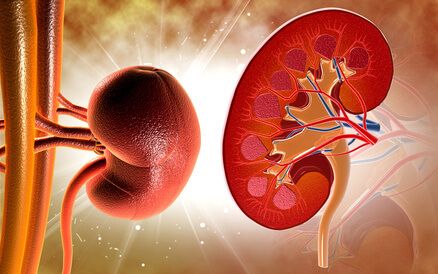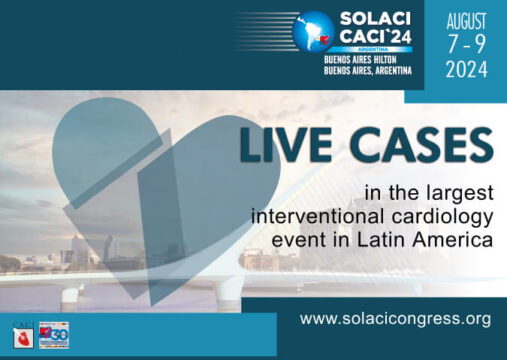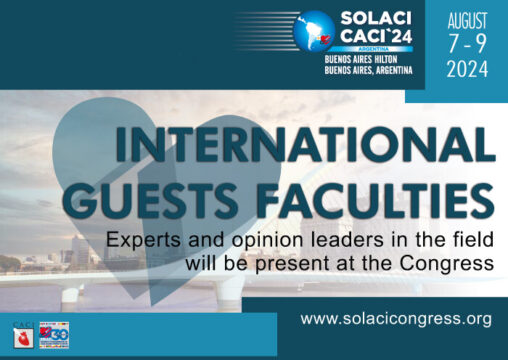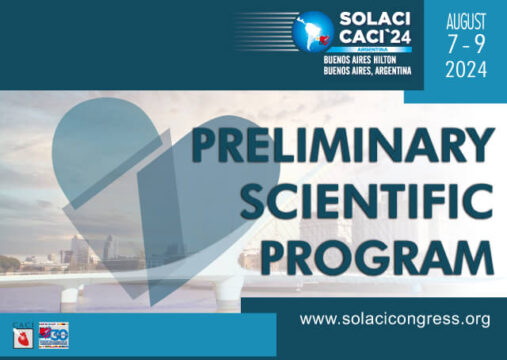The day is finally here. The XLIV SOLACI Sessions (15th Southern Cone Region) began in Paraguay, with participants attending both in person and virtually, and the participation of prestigious interventional cardiologists from Paraguay and Latin America.

The event is a scientific success, with over 200 registrations for in-person attendance and 700+ people connecting via Zoom.
The first day of activities began with the opening ceremony, where the President of the Paraguayan Society of Cardiology and Cardiovascular Surgery (SPCyCC), Dr. Alberto Marecos Baruja, and the SOLACI Sessions Director, Dr. Gustavo Vignolo, welcomed the attendees to what would be an intense day of theoretical and practical learning in cardiovascular interventionism.
The morning modules focused on Chronic Ischemic Heart Disease and Non-ST Elevation Acute Coronary Syndromes, with important presentations on chronic coronary syndromes (CCS), pharmacological strategies, revascularization in CCS, acute coronary syndromes, multi-vessel disease, and acute coronary syndromes in young women (among other topics).
Afterwards, the Director of the SolSOLACI Program, Dr. Marcelo Halac, opened the session on charitable pediatric cases and presented the main achievements of a chapter that has already been involved in over 70 charitable cases throughout the continent. In this sense, he explained that the main objective of the program is facilitating access to cardiovascular procedures for low-income patients who lack medical coverage in Latin American and Caribbean countries.
In the afternoon, there were sessions on antiplatelet and anticoagulation therapies (with interesting presentations on double antiplatelet therapy, post-angioplasty anticoagulation, post-TAVR antithrombotic treatment, bleeding complications, and more), and on Acute Coronary Syndromes with ST Elevation (where relevant topics such as infarct codes, pharmaco-invasive strategies, late acute infarction, and clinical cases were discussed).
We hope you will join us to continue enjoying an unmissable event for all interventional cardiologists from Paraguay and the region.
Subscribe to our weekly newsletter
Get the latest scientific articles on interventional cardiology





